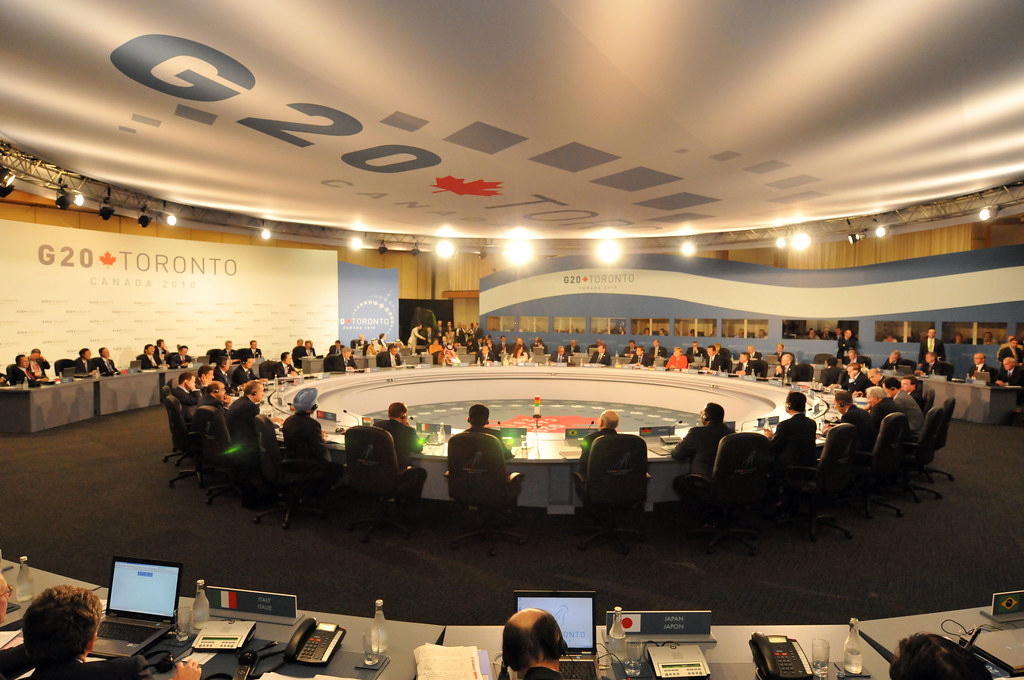This post is co-authored by Vijaya RamachandranLast week, the G-20 agriculture ministers meeting in Paris issued a
communiqué calling for the
World Food Programme to develop hedging strategies to purchase food. In a little-noticed section towards the end of a 24-page document, the ministers stated:
We invite the multilateral, regional and national development banks or agencies to further explore, in connection with the private sector as appropriate: Development of hedging strategies that could help international humanitarian agencies, in particular WFP, to optimize food procurements and maximize the purchasing power of financial resources, building upon forward purchase… (Annex 5)
The statement from the G-20 Ag Ministers may seem like a dry, bureaucratic announcement. We wouldn’t blame you for taking this view–people’s eyes tend to glaze over whenever the word “procurement” is used. This would be a big mistake, because the communiqué opens the way for changes in WFP procedures that have potentially far-reaching—indeed, life-saving—consequences for the world’s poorest people. With an annual budget of about $4 billion the WFP each year provides crucial sustenance to some 100 million people who would otherwise face hunger, malnutrition or even starvation.The WFP could do even better. Since its creation almost 50 years ago, the WFP often has to react to food crises, by appealing for donations to help the hungry, then purchasing food on global markets and shipping it to those who need it. Too often the food arrives after the worst of the emergency has passed, extracting a terrible human toll. And because the WFP buys food on spot markets, WFP purchases can exacerbate price hikes in times of shortage, reducing the purchasing power of the WFP funds.For example, during the rapid run-up in commodity and fuel prices in 2008, the WFP’s buying power fell by roughly half. By the time the WFP mobilized additional donor contributions, it was too late. This year the world is facing yet another commodity price spike, which will undoubtedly affect the poorest and most vulnerable populations.In a
CGD working paper published last year, we outlined how hedging tools could help the WFP to purchase larger quantities of food at optimal times, improve budgetary planning, predictability, and programming, reduce the need for large in-country stocks, and allow for more timely delivery to people affected by soaring food prices, conflict, floods or other natural disasters. We also argued that emergency food aid would be much more effective if it were financed on a multi-year, cash basis by rich countries, rather than on a year-by-year, reactive basis which exposes the WFP to dramatic commodity price uncertainty.While our colleagues have lamented the communiqué’s
lack of new financial commitments for food security, we believe that the call for innovative food financing cannot come at a better time.We are thrilled that the G-20 is taking the issue of financial risk management (i.e., hedging) seriously. Based on our own involvement and observation of the policy process over the past year, France and Canada deserve special recognition for aggressively pushing this issue towards G-20 endorsement. Bravo to them!The next step is to translate this vision into operational reality. We know that there are WFP staff who are eager to pursue these simple cost-saving and life-saving strategies. WFP management now has a green light to prepare a concept paper for the WFP board, which we hope will lead to one or more hedging pilots and a comprehensive strategy for advance purchases of food.With the G-20 on the record, we will be watching with interest and expecting rich countries to help the WFP make the most of hedging tools so it can get on with what it does best, providing emergency food to those most in need.
CGD blog posts reflect the views of the authors, drawing on prior research and experience in their areas of expertise.
CGD is a nonpartisan, independent organization and does not take institutional positions.





